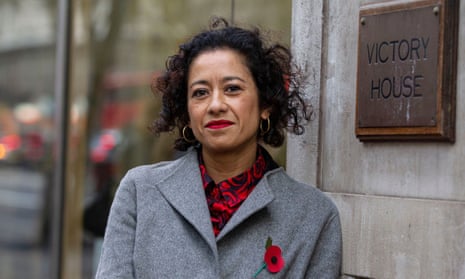If a national government stood aside for five decades while the legal rights of half its citizens were heedlessly trampled, one might expect it to lose the public’s trust. Yet that is exactly why British women endure a massive gender pay gap – and no one seems to notice.
This year, 14 November is Equal Pay Day. Because of the gender pay gap, this is the last day until January that women in the UK are paid to work. The data spells out clearly who is underpaid, but does not reveal the real reason why millions of female workers are unfairly compensated. Women aren’t paid equally because, in practice, British law does not protect them – and their employers know it.
After 50 years under equality legislation, no western country has closed the gender pay gap and all for the same reason: when these laws were enacted, the burden of enforcement was put on the backs of individuals. Women had to bear the expense and risk of claiming their rights by themselves. When their cases have been heard, judiciaries have been, at best, inconsistent in their decisions. Now many women have little faith that they will see justice and are overwhelmed by the costs and risks, so most pay discrimination goes unchecked. Meanwhile, employers have learned that the risk of a successful equal pay lawsuit against them approaches zero, so the practice of underpaying women goes on.
For the ordinary British household, the risks involved in pressing an equal pay claim are staggering. The legal fees can range from £35,000 to £150,000, sometimes higher – a significant amount for most people even if the claim is settled. And the decision to press a complaint must be made with insufficient and potentially unreliable information. Most women never gain access to formal documents that show they have been paid unequally; instead, after years, individuals may only suspect unfairness. If a woman does speak, she may do so without the help of colleagues – the British taboo against talking about pay is strong.
All of this creates profound stress for women and their families. Her workplace may grow unfriendly, there could be anger at home. All the while, the process for pursuing the claim is slow and unpredictable, filled with requirements that do little but run the clock. Employers have an interest in dragging things out, hoping to bleed the employee until she can no longer afford to continue and gives up. For the woman, living through an equal pay case is sheer torture.
The complainant does not gain access to official compensation information until her case arrives at the employment tribunal. At that point, months of sparring with the employer will have passed, including time spent trying to get the boss to do the right thing and going through arbitration – activities that are expected by the court. Meanwhile, the meter is ticking, and the woman still doesn’t know for sure if she is unequally paid, or by how much.
This matters, a lot. Because if her own information turns out to be wrong, the employer can ask the court to make her pay their lawyers as well as her own. Yet there is no complementary provision for the woman to recover what it cost to make the employer pay what she was owed in the first place.
The risks are astronomical, but the possible payoff is, by comparison, minuscule. Six years of back pay is what a woman can expect to recover in a successful claim. If a woman makes £40,000 a year and men in the same job make £45,000, the most she can recover is £30,000. Her lawyer will bill her at least that much. In effect, most British women cannot afford to make an equal pay claim, no matter how egregious the offence.
When we hear about pay settlements out of court, we often imagine stacks of cash handed over to the woman behind the complaint. The truth is that she is often forced to accept a smaller settlement, just to cut her losses and get out.
The system is essentially a gentleman’s agreement to contain sex discrimination claims. It is fundamentally corrupt.
If the government sincerely wanted British women to be paid fairly, it would step up to its responsibility to protect the rights of citizens instead of forcing individuals to be their own police. Until equal pay enforcement is reformed, there will be plenty more shocking statistics to come.
